In Henrik Ibsen's 'An Enemy of the People', the reader is transported to a small Norwegian town where Dr. Thomas Stockmann strives to reveal the town's polluted water source. This play, written in 1882, showcases Ibsen's Harsh Realism style, where he criticizes society's tendency to suppress inconvenient truths. The play highlights themes of individualism versus collectivism, the power struggle between truth and authority, and the consequences of standing up against popular opinion. Ibsen's use of lively dialogue and strong character development keeps the reader engaged in this powerful social commentary. Henrik Ibsen, known as the 'Father of Realism', drew inspiration for this work from a personal experience where his plays were rejected by audiences due to their controversial nature. 'An Enemy of the People' serves as a reminder of the importance of speaking out against social injustices and remaining steadfast in one's values, making it a timeless classic that continues to resonate with audiences across generations. I highly recommend this thought-provoking play to readers interested in exploring the complexities of societal norms and the individual's moral obligation to truth and justice.
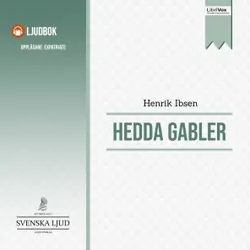
Hedda Gabler
Henrik Ibsen
audiobookbook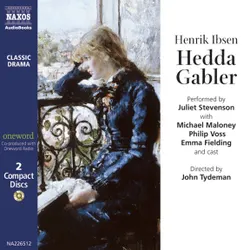
Hedda Gabler
Henrik Ibsen
audiobookbook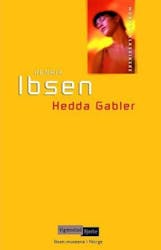
Hedda Gabler: skuespill i fire akter (1890)
Henrik Ibsen
book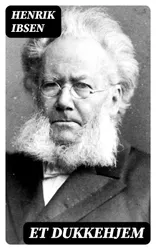
Et dukkehjem
Henrik Ibsen
book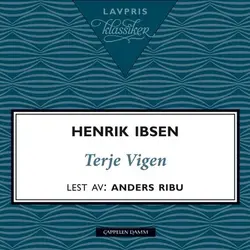
Terje Vigen
Henrik Ibsen
audiobookbook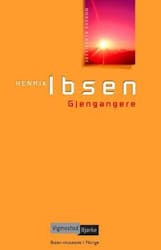
Gjengangere: et familiedrama i tre akter (1881)
Henrik Ibsen
book
World's Greatest Classics in One Volume : Les Misérables, Hamlet, Jane Eyre, Ulysses, War and Peace, Art of War, Faust, Don Quixote, Bushido…
Johann Wolfgang von Goethe, Stendhal, Jules Verne, Gustave Flaubert, Lewis Carroll, Henrik Ibsen, Charles Dickens, Plato, Honoré de Balzac, Mark Twain, Harriet Beecher Stowe, Rabindranath Tagore, Fyodor Dostoyevsky, Walt Whitman, Niccolò Machiavelli, Oscar Wilde, Robert Louis Stevenson, James Fenimore Cooper, Edgar Allan Poe, William Shakespeare, Giovanni Boccaccio, Confucius, George MacDonald, Bram Stoker, Charlotte Brontë, Emily Brontë, Henry David Thoreau, Weedon Grossmith, Jack London, Henry James, Louisa May Alcott, Victor Hugo, Arthur Conan Doyle, Frances Hodgson Burnett, Joseph Conrad, Jane Austen, Herman Melville, George Eliot, Laurence Sterne, Thomas Hardy, Jonathan Swift, Edith Wharton, Benito Pérez Galdós, Daniel Defoe, Henry Fielding, Alexandre Dumas, Kalidasa, Kenneth Grahame, Marcel Proust, Willa Cather, Nathaniel Hawthorne, Homer, Gaston Leroux, Charles Baudelaire, Wilkie Collins, William Makepeace Thackeray, Voltaire, Kate Chopin, Apuleius, John Milton, Frederick Douglass, Laozi, John Keats, James Joyce, Ann Ward Radcliffe, Kahlil Gibran, Kakuzo Okakura, Soseki Natsume, Princess Der Ling, H. G. Wells, W. B. Yeats, J. M. Barrie, G. K. Chesterton, T. S. Eliot, L. M. Montgomery, C. S. Lewis, D. H. Lawrence, E. M. Forster, H. P. Lovecraft, Marcus Aurelius, Friedrich Nietzsche, Lewis Wallace, Ivan Turgenev, Anton Chekhov, Leo Tolstoy, Nikolai Gogol, Sir, George Bernard Shaw, Miguel de Cervantes, Mary Shelley, Cao Xueqin, Emile Zola, Válmíki, Bankim Chandra Chatterjee, P. B. Shelley, Elizabeth von Arnim, Herman Hesse, Dante, Pedro Calderon de la Barca, Sun Tzu, Inazo Nitobé
book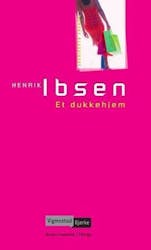
Et dukkehjem
Henrik Ibsen
book
En folkefiende
Henrik Ibsen
book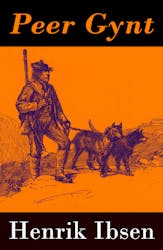
Peer Gynt - with original colour illustrations by Arthur Rackham
Henrik Ibsen
book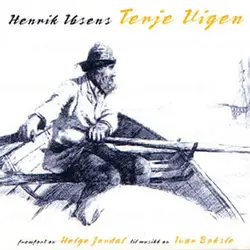
Terje Vigen
Henrik Ibsen
audiobook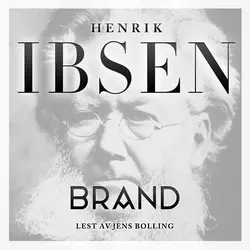
Brand
Henrik Ibsen
audiobookbook
